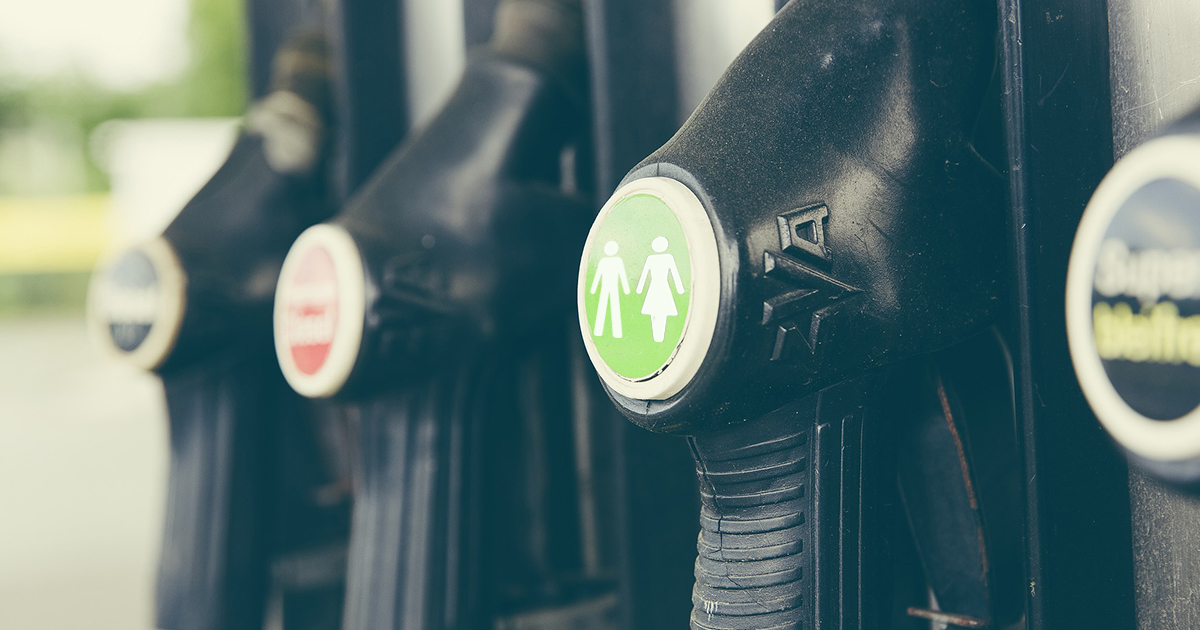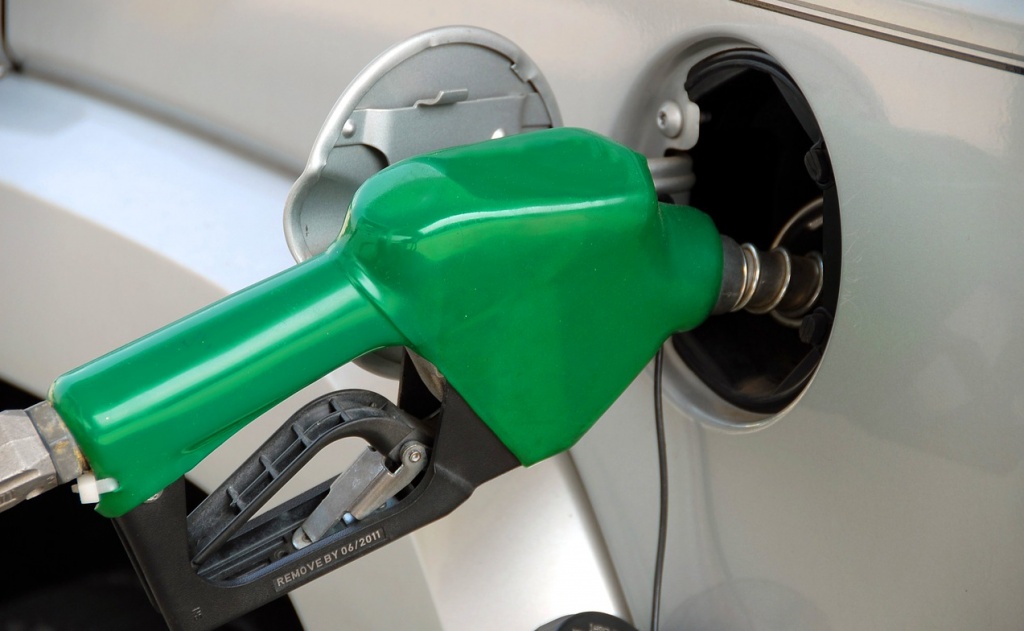Can Human Fat be Used to Fuel Your Car?
By on Feb 15 2017

It's not the prettiest thing to think about, I know. But what if an alternative form of fuel is staring at us in the face--or is, rather, part of our face?
Can the human body be turned into biodiesel?
I mean, the Greek root word bio means life, right?
But before we look at the feasibility (and, ahem, ETHICS) of using little bits of people to transport us from place to place, let's first take a look at what make this absurd idea even remotely possible: Biodiesel.
What Even is Biodiesel?

Biodiesel is a type of biofuel produced through biological processes rather than traditional geological processes (you know, fossil fuels). Unlike conventional "fossil" diesel, biodiesel is produced through the "transesterification" of vegetable oil, animal oils and fats, tallow, or used cooking oil. Biodiesel is probably the most popular choice among the various alternatives to using traditional gasoline, particularly for those who want to reduce their dependency on "Big Oil." When using old cooking oil, it's also promoting recycling, which is always a plus! Another benefit? As long as you have a diesel engine, you can pump biodiesel into your vehicle with little-to-no modification. Seriously.
The largest source of suitable oil for biodiesel comes from vegetable oil crops such as rapeseed, palm or soybean; currently, the most biodiesel produced is made from waste vegetable oil sourced from restaurants, industrial food producers, etc.. Compared to the high cost of raw oil directly from manufacturers, waste oil can often be sourced for free or sourced (already treated) for a small price. Before it can be converted into biodiesel, waste oil first needs to be treated to remove impurities. Biodiesel can be used alone in its pure form (B100) or blended with petroleum diesel.
The Most Common Biodiesel Blends:
- B100 --100% biodiesel
- B20 --20% biodiesel. 80% petrodiesel
- B5 --5% biodiesel, 95% petrodiesel
Despite the popularity of vegetable oil, animal fats can also be used to produce high-quality biodiesel that meets ASTM specifications.
Using Fats for Biodiesel Production
The biodiesel industry has been experiencing changes over the past decade or so. Over this course of time, animal fats have become popular sources of biodiesel feedstocks because their cost is lower than vegetable oils and their market is much more limited. They also generate RINs under the Renewable Fuel Standard and have a high free fatty acid (FFA) content. In the US, approximately 1/3 of fats and oils produced come from animals (such as beef tallow, pork lard, and chicken fat). Animal fats are traditionally utilized in making pet food and animal feed as well as industrial purposes like soap-making. Tallows are also used in some lubricating oils, such as compounded gear oil, to give them extreme pressure-like properties without being corrosive. Inedible tallow, choice white grease, and poultry fat are likely to be used as biodiesel feedstocks.
How does fat go from being on the body to running a diesel engine?

Before fat can be turned into biofuel, it is rendered into oil. The rendering process involves grinding the animal by-products and cooking them until liquid fats separate and pathogens are destroyed. Water is also removed during the cooking process, which creates a solid, stable material. By the end of the rendering process, what's left are fat and a product called "meat and bone meal" (which can be found in the ingredients in dog food, for example).
The Benefits and Problems with Animal Fat Biodiesel
Fat-based biodiesel isn't the perfect fuel; as with everything else in the world, it has both perks and drawbacks. For instance, animal fat-based biodiesels have a higher cetane rating than both veggie- and petrol-based biodiesels and produce smaller increases in NOx than other biodiesel products. However, they can also have too high a sulfur content for highway use and can be too viscous. B100 biofuel should only be used in very warm climates.
Ok. So since it's not only possible--but also common--to run cars on animal fat, is it possible to run them on human fat?
The short answer: yes.
It is possible to produce biodiesel from human fat because just like animal lard, human body fat contains trigylicerides, and can undergotransesterification to be turned into fuel. During the transesterification process, triglycerides react with alcohol to form ester and glycerol. Triglycerides have a glycerine molecule as its base with three long chain fatty acids attached; the nature of the attached fatty acids determines the characteristics of the fat, which can then affect the characteristics of biodiesel.
Creating fuel from human fat has actually be done before.
In 2007, an eco-boat called The Earthrace broke records by circumnavigating the globe in under 61 days. But if that's not a special feat in and of itself, it did so--in part--powered by human fat. Three members of The Earthrace crew actually underwent liposuction for the challenge; their combined 2.5 gallons of fat produced almost 2 gallons of fuel, which was enough to go 9 miles out of their 27,600-mile journey.
In 2008, a cosmetic surgeon from Beverly Hills, California, claimed that he produced biodiesel from fat he liposuctioned off patients. Once the California Department of Public Health found out about Dr. Craig Alan Bittner's scheme, he apparently left California for South America. There wasn't much evidence to support whether Bittner actually did this--in fact, if anything, it seems more likely that it was all a lie.

Is it a viable option for fuel?
The short answer: no, probably not. But this answer could get a little complicated--particularly depending on your morals (not to mention medical waste laws).
Realistically, there's probably not going to be enough liposuctioned human fat to impact the biofuel market very much. Going back to The Earthrace example, they needed more than 2 gallons of fat to produce only 2 gallons of fuel. That translates to close to 20 pounds of human fat for those 2 gallons of fuel (since 1 gal. fat = 7.4 lbs.). Now, technically I don't drive a diesel, but hypothetically speaking, if my Subaru Legacy has a fuel capacity of 18.5 gallons, and I wanted to completely fill'er up with B100 (derived from human fat), it would require about 137 lbs of fat to make enough biodiesel. That's a lot--that's like a whole person.
You might be thinking, but there are other ways to acquire human fat! (Or maybe you're not and just think this whole idea is weird/disturbing/gross, etc.) Technically there are. But that doesn't really make the idea any more feasible. At least not for the time being.
For one, things could get tricky if any human fat in question is considered medical waste (which is waste generated at various health care facilities, medical research facilities, and laboratories). So any fat that comes from a hospital as, say, a medical procedure needs to be disposed of properly and in accordance with disposal regulations (which are regulated by state environmental and health departments). In California, for example, fueling a vehicle is not the proper way to dispose of medical waste.
But what about body fat that isn't included in medical waste? I mean, people donate their bodies to science all the time, but I'm not going to suggest that we start running vehicles on dead people. That is totally above my moral pay grade as a mere human. We've got issues regarding dignity, bodily integrity regarding deceased persons, and a whole slew of other moral/legal objections that I'm sure would rise up at such a suggestion. Who knows--it might even initiate a black market for illegally-obtained human fat biodiesel?

Sources:
http://www.esru.strath.ac.uk/EandE/Web_sites/02-03...
http://articles.extension.org/pages/30256/animal-f...
http://biodiesel.org/docs/default-source/news---su...
http://biodiesel.org/what-is-biodiesel/biodiesel-b...
http://www.csmonitor.com/Environment/Bright-Green/...





